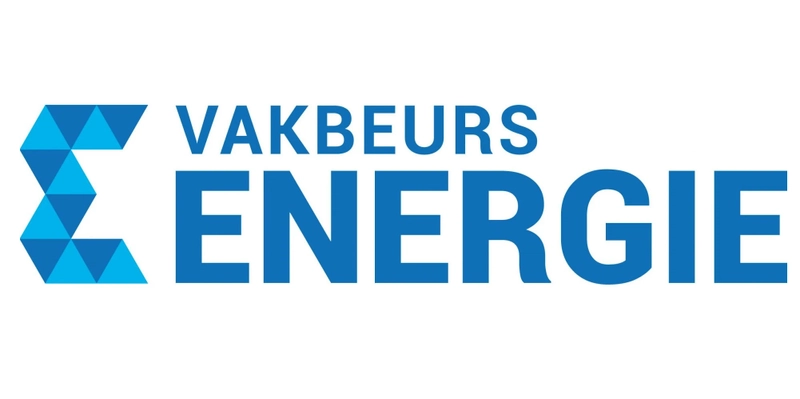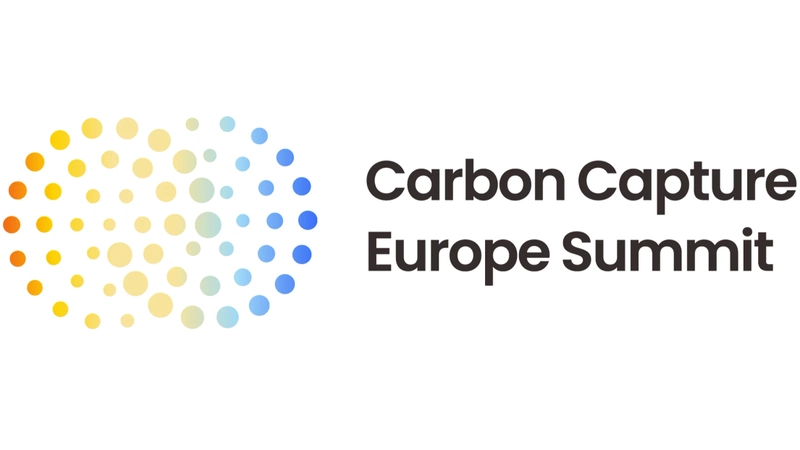Energy Production & Transportation Events in Netherlands


Arnhem Electricity Week
Arnhem Electricity Week: Driving Innovation and Global Collaboration in Electrification
A Premier Platform Showcasing New Power Technologies in Europe
The Arnhem Electricity Week has established itself as a landmark event in the energy sector, celebrating its ninth edition with renewed vigor and vision. Set against the backdrop of rapid technological advancements and a global push for clean energy, this event offers a critical platform for showcasing innovative solutions in electrification. Recognized for its forward-thinking approach, Arnhem Electricity Week brings together industry leaders, experts, and professionals committed to shaping the future of energy in Europe and beyond.
This year, Arnhem Electricity Week stands out as a melting pot of ideas and expertise, drawing civil engineers, energy professionals, and key stakeholders from various parts of the world, including Ghana, Iran, and Turkey. This international diversity enriches the discussions and collaborations, ensuring a wide spectrum of perspectives and experiences that fuel innovation in electrification technologies.
Highlighting Cutting-Edge Trends and Technologies in Electrification
The core mission of Arnhem Electricity Week is to provide a dynamic environment where the latest trends and technological breakthroughs in electrification are explored and disseminated. Over the course of a week, participants can expect a carefully curated program of original events, each designed to delve into pressing topics and emerging solutions in the energy sector.
Some of the key areas of focus include:
Advanced Grid Technologies: Innovations that enhance grid reliability, resilience, and smart integration of renewable energy sources.
Electrification of Transport: Exploring how electric vehicles, charging infrastructure, and related technologies are transforming mobility.
Energy Storage and Management: Cutting-edge solutions in battery technology and energy management systems that enable efficient power utilization.
Sustainable Energy Policies: Discussions on regulatory frameworks and incentives that support the transition toward cleaner energy systems.
This broad scope ensures that Arnhem Electricity Week addresses the multifaceted challenges and opportunities that electrification presents today.
Fostering International Networking and Collaborative Opportunities
One of the most valuable aspects of Arnhem Electricity Week is its ability to connect diverse professionals across borders and disciplines. The presence of delegates from countries such as Ghana, Iran, and Turkey not only enhances the international character of the event but also facilitates knowledge exchange across different energy landscapes.
Networking sessions, workshops, and roundtable discussions provide attendees with opportunities to build meaningful partnerships, share best practices, and explore potential joint ventures. These interactions often lead to collaborations that drive real-world projects and innovations.
Key Benefits of Attending Arnhem Electricity Week
Gain insights into the latest electrification technologies and industry trends.
Connect with a global network of civil engineers, energy experts, and decision-makers.
Participate in interactive discussions and workshops tailored to emerging challenges.
Explore business and research collaborations that can accelerate energy transitions.
Arnhem Electricity Week as a Catalyst for the Future of Energy
Beyond showcasing technology, Arnhem Electricity Week plays a vital role as a catalyst for advancing the electrification agenda in Europe. By fostering an inclusive platform where ideas meet implementation, the event empowers stakeholders to translate innovation into impact.
As electrification becomes increasingly central to global sustainability goals, Arnhem Electricity Week’s commitment to knowledge sharing and collaboration ensures that the energy sector continues to move forward with purpose and momentum. It is a place where visionary ideas are sparked, partnerships are forged, and the future of energy is shaped.
Join the Movement Toward New Power
Arnhem Electricity Week invites energy professionals from all corners of the globe to engage in this transformative event. Whether you are a civil engineer, policy maker, or industry leader, this week-long gathering offers unparalleled opportunities to stay ahead in the evolving landscape of electrification.
By participating, attendees contribute to a collective effort to advance clean, reliable, and efficient energy systems. Arnhem Electricity Week is not just an event — it is a movement dedicated to powering Europe and the world toward a sustainable energy future.


OEEC - Offshore Energy Exhibition And Conference
OEEC: Shaping the Future of Offshore Energy in Europe and Beyond
Offshore Energy Exhibition & Conference (OEEC) is Europe’s leading offshore energy event. For over a decade, it has built a reputation as the premier platform that brings together professionals from across the offshore wind, oil & gas, and marine energy sectors. As the energy landscape undergoes rapid transformation, OEEC has become more than just a trade show it is a strategic meeting point where the industry connects, collaborates, and creates its future.
What sets OEEC apart is its holistic and cross-sector approach. Whether you’re a stakeholder in traditional fossil fuels, emerging renewables, or maritime innovation, the event provides a single platform to network, share expertise, and explore new opportunities.
A Unique Crossroads for the Offshore Energy Industry
For more than 12 years, OEEC has been unique in uniting the offshore energy industry sectors under one roof. Nowhere else in Europe can you find such a comprehensive and well-curated convergence of:
Offshore wind
Oil and gas
Marine energy
Maritime innovation
Sustainable ocean technologies
This intersection of industries creates the perfect storm of knowledge exchange, investment opportunities, and cross-sector inspiration. Attendees benefit from insights that span traditional operations and next-generation energy solutions, all within the same venue.
Why OEEC is a Must-Attend for Offshore Energy Professionals
The numbers alone speak volumes: every year, more than 550 exhibitors from around the world showcase their latest services, technologies, and strategic projects. These companies range from established energy giants to nimble startups driving disruption in offshore solutions.
With around 12,000 energy professionals attending over three days, OEEC continues to be the go-to destination for:
Business development – The exhibition floor is alive with deal-making and spontaneous collaborations.
Innovation exposure – Exhibitors use OEEC as a launchpad for breakthrough products and services.
Learning and thought leadership – Through immersive conference sessions and technical talks.
And most importantly, it provides a neutral and open space where traditional energy players and renewable pioneers learn from one another—bridging the gap between legacy systems and sustainable futures.
The Conference: Deep Dives into Today’s Challenges and Tomorrow’s Solutions
Beyond the buzz of the exhibition floor lies the heart of the OEEC experience: its conference program. Designed for professionals who want more than surface-level conversations, these sessions go deep into strategic topics, technology breakthroughs, and policy implications shaping the offshore sector.
Key themes often include:
Energy transition pathways and decarbonization
Floating wind and hybrid platforms
Offshore hydrogen production
Decommissioning and circular economy models
Maritime electrification and autonomy
Digitalization, AI, and asset optimization
These technical discussions are led by leading international experts, policy makers, and C-level executives, creating a rare chance to engage with the people driving real change.
A Networking Experience Like No Other
Networking isn’t just a side benefit of attending OEEC it’s at the core of the event’s design. With its dedicated matchmaking areas, private lounges, and informal gatherings, OEEC offers a multilayered networking experience that suits every professional style.
Noteworthy networking opportunities include:
International trade missions to explore cross-border partnerships
Exclusive lounges for OEEC member club participants
The Startup Zone, where new players pitch ideas and meet investors
The Stage, offering open-access talks and live demos
Networking drinks and receptions ideal for casual yet strategic conversations
These features turn the three-day event into a powerful arena for building long-term business relationships and collaborative ventures.
Sustainability and Innovation Take Center Stage
As the world races toward net-zero, the offshore energy industry finds itself at the intersection of environmental responsibility and innovation. OEEC doesn't shy away from this challenge—instead, it fully embraces it by showcasing companies and technologies dedicated to creating a cleaner, smarter, and more integrated offshore ecosystem.
The event highlights:
Sustainable maritime solutions
Carbon capture and storage innovations
Nature-inclusive infrastructure
Green hydrogen production from offshore platforms
Low-impact drilling and extraction methods
By doing so, OEEC proves that the energy transition isn’t a future scenario it’s already happening, and the industry must evolve or risk being left behind.
Bringing Together the Stakeholders That Matter
The exhibition floor is where people meet to do business but it's also where they come to be part of a broader dialogue. OEEC is known for attracting a wide range of stakeholders, including:
Industry leaders and executives
Government and regulatory bodies
Technical specialists and engineers
Innovators and R&D teams
Financial and investment professionals
Environmental consultants and academics
This diverse mix of participants ensures well-rounded discussions, covering not only commercial goals but also policy alignment, technological feasibility, and long-term social impact.
Supporting Innovation Through the Startup Zone and The Stage
OEEC dedicates real estate and programming to the new generation of offshore energy innovators. In the Startup Zone, early-stage companies have the chance to meet investors, pitch their concepts, and demo their prototypes. This area is often where the most disruptive ideas are first introduced to the market.
Meanwhile, The Stage hosts open-access presentations, demos, and quick-fire talks that attract large crowds and stimulate curiosity. Whether you’re attending your first OEEC or returning for the 10th time, these areas ensure there’s always something new to discover.
Final Thoughts: More Than an Event A Movement Toward a New Energy Future
In an era where energy systems must become cleaner, more resilient, and more integrated, the Offshore Energy Exhibition & Conference stands as a lighthouse guiding the offshore energy community toward collaboration, innovation, and sustainable growth.
By bringing together oil & gas, offshore wind, and marine energy under one roof, OEEC breaks down silos and sparks the conversations that truly matter. From the exhibit hall to the conference stage, from matchmaking lounges to startup pitches, OEEC offers the tools, the people, and the momentum needed to shape the future of energy together.


Vakbeurs Energie
Vakbeurs Energie: The Netherlands’ Premier Event for Energy Efficiency and Sustainable Innovation
As the global demand for energy-efficient solutions and sustainable infrastructure continues to grow, the Netherlands has emerged as a key player in advancing the energy transition. At the heart of this momentum lies Vakbeurs Energie, the largest and most influential business networking event in the country focused on sustainable energy generation and energy savings in the built environment.
Hosted annually, this three-day event attracts energy professionals, innovators, technology providers, and policymakers who are committed to accelerating the transition to a cleaner, smarter, and more efficient energy future. With an agenda rich in knowledge-sharing opportunities, real-world demonstrations, and actionable insights, Vakbeurs Energie is far more than a trade show—it is a strategic meeting point where ideas become impactful collaborations.
Why Vakbeurs Energie is a Must-Attend Event for Energy Professionals
Vakbeurs Energie has built a reputation over the years as a vital platform for fostering knowledge exchange, industry partnerships, and business development. The event is designed for stakeholders working across the built environment—from architects and real estate developers to technology integrators and energy consultants.
Held in the Netherlands, a nation renowned for its progressive energy policies and innovation culture, Vakbeurs Energie continues to play a central role in connecting key actors within the renewable energy ecosystem.
Attending Vakbeurs Energie offers:
Direct access to cutting-edge technologies shaping energy efficiency and smart building systems
In-depth discussions on energy savings, storage, and generation techniques
An ideal environment for forming strategic partnerships and securing new business
The opportunity to stay ahead of regulatory trends and market developments
The event is designed to serve both established enterprises and emerging startups, offering something valuable for every tier of the clean energy value chain.
Focus Areas: From Electric Heating to Intelligent Energy Management
Vakbeurs Energie doesn’t just showcase products—it fosters real conversations around future-proof energy strategies. One of the key themes of recent editions has been the transition to electric heating, a critical component in reducing dependence on fossil fuels in buildings.
In addition, the event also emphasizes advanced energy management systems, with innovative solutions like the Alice algorithm gaining attention for their ability to optimize consumption, reduce waste, and drive operational savings.
Key focus areas of the event include:
Sustainable heating and cooling systems
Smart grids and home energy automation
Energy storage solutions, including thermal and battery-based models
Net-zero building strategies and passive design techniques
Energy-efficient retrofitting in real estate and infrastructure
IoT and AI applications in building energy management
Each theme is explored through expert panels, product showcases, and live demonstrations, helping attendees not only understand the theory—but experience the technology in action.
A Platform for Real Business and Innovation
One of Vakbeurs Energie’s standout qualities is its ability to bring together professionals from diverse sectors and generate real business outcomes. The event is not just about showcasing what’s new—it’s about building a better energy future through collaboration.
Here’s what attendees can look forward to:
Interactive Knowledge Sessions
Hosted by academics, industry experts, and solution architects, these sessions dive deep into challenges like retrofitting existing infrastructure, overcoming electrification barriers, and scaling up solar integration in urban spaces.
Live Demonstrations and Tech Showcases
Exhibitors present real-time product demonstrations, from smart meters and insulation systems to intelligent HVAC technologies and AI-powered energy monitoring.
Startup Innovation Zone
A dynamic arena where early-stage companies pitch their solutions in energy generation, efficiency, and green building technology to potential partners and investors.
Networking Lounges and Business Matchmaking
Structured to maximize opportunity, Vakbeurs Energie provides curated meeting spaces where participants can initiate and nurture meaningful business relationships.
Who Will You Meet at Vakbeurs Energie?
Vakbeurs Energie attracts a broad and highly qualified audience, creating a unique cross-section of stakeholders shaping the future of the energy transition. Whether you’re a tech innovator, policymaker, or facility manager, you’ll find your peers—and future collaborators—here.
Typical attendees include:
Municipal energy managers and sustainability officers
Real estate developers and property managers focused on sustainable building
Consulting engineers and retrofit specialists
Clean tech startups and scaleups in energy and infrastructure
Investors and venture builders in the energy sector
Manufacturers of heating, cooling, and power systems
With thousands of visitors and hundreds of exhibitors, the event presents a unique opportunity to engage with both local and international players, all under one roof.
The Role of Vakbeurs Energie in Supporting the Dutch Energy Transition
The Netherlands is known for its ambitious energy targets, including large-scale decarbonization of buildings and a nationwide transition to renewable heating systems. Vakbeurs Energie actively supports these goals by:
Promoting practical and scalable solutions for homeowners, businesses, and municipalities
Connecting stakeholders across policy, industry, and academia
Highlighting regulatory and incentive programs that support clean energy adoption
Serving as a knowledge hub where new policies are debated and clarified
Through this proactive approach, the event contributes directly to the implementation of national and EU-wide sustainability initiatives, helping cities and companies alike meet their environmental targets.
Three Days That Can Reshape Your Energy Strategy
As the largest and most comprehensive sustainable energy business event in the Netherlands, Vakbeurs Energie offers unmatched value for anyone involved in the built environment and energy management sectors.
From real estate transformation to smart electrification, from AI-based energy control to future-ready heating systems, the event showcases how sustainability can be both profitable and achievable. It’s not just an exhibition—it’s a powerful platform for strategic change.
Don’t miss the chance to:
Gain critical insights into the latest energy innovations
Meet key partners and solution providers
Accelerate your projects with cutting-edge tools and expert knowledge
Be part of the movement toward a low-carbon, high-efficiency future
If you're committed to building a smarter, greener built environment—Vakbeurs Energie is where your next transformation begins.


Pumps & Valves Rotterdam
Pumps & Valves Rotterdam: Where Process Industry Professionals Meet Innovation
Pumps & Valves Rotterdam is more than just a tradeshow—it's a hub for innovation, connection, and critical learning in the process industry. As a standout event in the heart of the Netherlands, this gathering brings together professionals from across sectors like petrochemicals, oil and gas, water management, and food production. It offers a targeted platform to explore technologies, discover industry-leading products, and connect with experts in fluid and gas systems.
Hosted at a strategic location in Rotterdam, this event is engineered for impact. From the moment you enter, it’s clear that every element—from the layout to the lineup—is designed to foster meaningful conversation and business opportunities.
A Focused Event for a Complex Industry
The process industry is undergoing rapid transformation, driven by stricter environmental regulations, digital innovation, and the demand for efficiency and sustainability. Pumps & Valves Rotterdam meets this challenge head-on by showcasing the latest developments in pumps, valves, instrumentation, flow control, and related technologies.
Visitors to the event can expect:
Live demonstrations of industrial pumps and valve assemblies
Hands-on displays of monitoring and control instrumentation
Exhibitor booths focused on corrosion resistance, flow optimization, and energy savings
Opportunities to discuss complex system design with engineers and specialists
This tailored focus allows every attendee—from CEOs to maintenance teams—to find solutions relevant to their operational needs.
Who Attends: A Snapshot of the Audience
What sets Pumps & Valves Rotterdam apart is the quality and diversity of its audience. Far from being a generic expo, the event attracts serious professionals who are actively seeking new technologies, supply chain partners, or technical upgrades for existing systems.
Typical attendees include:
Technical directors and CTOs
Process and R&D engineers
Procurement and maintenance managers
Operations teams and facility supervisors
Consultants and integrators focused on fluid systems
Whether you're a supplier looking to connect with large industrial buyers or an engineer seeking next-generation equipment, this event offers direct access to decision-makers and solution-seekers alike.
Cross-Sector Appeal and Technology Integration
The strength of Pumps & Valves in Rotterdam lies in its cross-industry relevance. From handling aggressive chemicals in petrochemical plants to maintaining sterile fluid flows in food production, the event covers the entire spectrum of fluid dynamics and system control.
The sectors represented include:
Oil and gas
Petrochemical and chemical processing
Water and wastewater treatment
Metal production and processing
Food and beverage manufacturing
Each sector comes with its own set of challenges—corrosive environments, hygiene standards, fluctuating pressures—and the exhibitors at Pumps & Valves offer insights into how the latest technologies can tackle them effectively.
Exhibitors Bringing Innovation to the Forefront
With a curated list of exhibitors specializing in everything from compact pump units to large-scale industrial valves, the event offers a well-rounded and technical showcase. Each booth serves as a knowledge hub, staffed by professionals eager to discuss specifications, integration, maintenance, and compliance standards.
Innovations on display include:
Digital twin applications for pump systems
Wireless sensors for real-time flow and pressure monitoring
Self-cleaning and low-maintenance valve designs
Modular system components to reduce downtime
Low-emission and energy-efficient pump technologies
These innovations are not just theoretical—they’re hands-on, proven, and immediately applicable. Whether you’re operating in a legacy facility or a greenfield project, the tools and ideas on show are practical and scalable.
Thematic Exhibitions and Knowledge Exchange
One of the highlights of Pumps & Valves Rotterdam is its integration of thematic technical exhibitions. These special zones dive deep into focused areas like automation in fluid control, sustainable piping systems, and predictive maintenance. They serve to both educate and inspire, offering a richer layer to the visitor experience beyond the standard tradeshow format.
In addition to the technical displays, visitors can attend:
Industry panel discussions
Case study presentations
Trend briefings and regulation updates
Hands-on workshops and tech demonstrations
These elements turn the event into a learning experience, not just a commercial one.
Building Relationships That Drive Progress
At its core, Pumps & Valves is about more than equipment—it’s about people. The event's structure is optimized for conversation, connection, and collaboration. Whether you're discussing system upgrades with a supplier, reviewing blueprints with a partner, or brainstorming over coffee with a new contact, the atmosphere supports meaningful business growth.
Visitors consistently cite the event’s networking value as one of its strongest features. In an industry where relationships and reliability are just as important as technical specs, face-to-face meetings are irreplaceable.
Why Attend Pumps & Valves Rotterdam?
For anyone in the fluid and gas industry, attendance at this event isn’t optional—it’s essential. The opportunity to see, touch, and compare multiple technologies under one roof is invaluable. Even more importantly, you gain the chance to speak directly with experts who can tailor solutions to your specific operational needs.
Here’s what you’ll walk away with:
An updated perspective on process system innovation
Direct contact with suppliers and service providers
Fresh ideas for improving plant efficiency and safety
Actionable strategies for modernization and compliance
Whether your focus is mechanical engineering, procurement, operations, or sustainability, you’ll leave better equipped to make smart, forward-thinking decisions for your facility or organization.
Practical Innovation and Professional Growth
Pumps & Valves Rotterdam succeeds because it’s practical. Every exhibitor, every technical showcase, and every conversation is geared toward solving real-world problems in the process industry. It's not just about showcasing products—it's about equipping professionals with the tools and knowledge they need to adapt, optimize, and lead.
If you're involved in pumps, valves, instrumentation, or any aspect of fluid and gas control, this is the event where your next breakthrough could begin.


Flame
Flame Conference: The Future of Gas, LNG, and Renewable Energy
The Flame Conference is returning for its 31st year, and it promises to be one of the most impactful events in the energy sector. Held annually, this prestigious conference is a gathering for over 600 energy leaders from around the globe. Flame 2025 aims to foster collaboration, accelerate innovations, and facilitate valuable partnerships in the gas, LNG, and renewable energy industries. The focus on low-carbon and renewable gases, alongside the importance of achieving energy transition goals, makes this an unmissable event for energy professionals.
The Role of Gas and LNG in Europe’s Renewable Energy Economy
As Europe works towards meeting its renewable energy targets, gas and LNG have become crucial components in the continent’s energy transition. Flame Conference 2025 will delve into how these energy sources can support the shift towards a more sustainable energy system. Gas, particularly in the form of LNG, serves as a bridge between traditional fossil fuels and the clean energy sources of the future. Its role in stabilizing the energy grid and providing flexibility for renewable energy integration is crucial.
At the conference, leaders will discuss how gas and LNG contribute to energy security while reducing carbon emissions. The growth of these sectors is seen as a core strength of the European low-carbon economy. Industry experts will explore the latest technological advancements, strategies for decarbonization, and how these resources can support a renewable-powered future.
The Transition to Low-Carbon and Renewable Gases
A significant highlight of the Flame Conference will be the focus on low-carbon and renewable gases, which are becoming increasingly vital in the global energy transition. The need for alternative energy sources is more pressing than ever, and low-carbon gases are emerging as a key solution. These gases, including biogas and hydrogen, can help decarbonize hard-to-abate sectors such as industry and heavy transport.
The event will feature discussions on the technological breakthroughs in the production and use of low-carbon and renewable gases. Delegates will have the opportunity to learn about cutting-edge developments in hydrogen production, as well as the potential of renewable gas for energy storage and flexibility. Flame will also address the growing importance of carbon capture and storage (CCS) technologies in reducing emissions and mitigating climate change.
Addressing Regulatory Obligations and Climate Targets
In addition to technological advancements, the Flame Conference 2025 will also examine the regulatory landscape of the energy industry. The energy sector is facing increasing pressure from governments worldwide to meet stringent climate targets. The event will highlight how energy leaders can navigate these challenges and capitalize on emerging opportunities within the regulatory framework.
With a special focus on compliance with climate regulations, the conference will discuss how industries can achieve net-zero emissions by adopting sustainable technologies, improving energy efficiency, and reducing their carbon footprint. Flame 2025 will explore how businesses can align their strategies with global and national climate goals, while simultaneously driving growth and innovation in the sector.
Networking and Strategic Opportunities at Flame
Flame 2025 is not just a conference—it is an essential platform for networking, collaboration, and strategic partnerships. Attendees will have the chance to connect with key players in the energy industry, including government officials, energy executives, and technology innovators. The conference facilitates an environment where these stakeholders can discuss the future of energy, identify business opportunities, and explore ways to collaborate for a sustainable future.
In addition to networking, the event provides a unique opportunity to gain actionable insights and hear from some of the brightest minds in the energy sector. Through interactive sessions and presentations, Flame allows attendees to stay updated on the latest trends and developments in the field of gas, LNG, and renewable energy.
Why Attend Flame Conference 2025?
For energy professionals, Flame 2025 is a strategic event that provides numerous benefits. By attending, participants can:
Gain Industry Insights: Learn about the latest trends, technologies, and market developments in the gas, LNG, and renewable energy sectors.
Build Valuable Connections: Network with energy leaders, investors, policymakers, and innovators from around the world.
Understand the Regulatory Landscape: Stay ahead of regulatory changes and learn how to navigate the challenges posed by evolving climate targets.
Foster Innovation: Engage with cutting-edge solutions and technologies that are shaping the future of energy.
Flame Conference 2025 will be a transformative event for anyone involved in the energy sector. With a focus on renewable gases, energy transition, and carbon reduction, the conference is poised to be an essential meeting point for industry leaders.
The Importance of the Energy Transition
The energy transition is a global priority, and Flame 2025 will play a pivotal role in driving this transition forward. As the world moves towards decarbonization, the role of gas and LNG in providing a flexible and stable energy supply will be critical. The event will showcase how these energy sources are supporting the integration of renewable energy into the global grid and contributing to energy security.
Attendees will also have the chance to learn from the successes and challenges faced by other regions and industries in their energy transition journeys. Flame will provide a collaborative space for sharing best practices, discussing innovative solutions, and forging partnerships that can accelerate the global shift to cleaner energy.
Flame is the Event for Future Energy Leaders
As Flame Conference 2025 brings together some of the most influential figures in the energy sector, it promises to be a transformative event. The conference will cover key topics such as low-carbon gases, LNG technologies, carbon capture, and energy regulations. It will also provide unparalleled networking opportunities, enabling attendees to form valuable connections and explore new business opportunities in the energy transition.
By attending Flame 2025, energy professionals can position themselves at the forefront of the energy transition, gain insights into the latest technological advancements, and contribute to shaping a sustainable future. With a focus on renewable gases and energy security, this conference is set to be a milestone event in the journey towards a low-carbon, energy-efficient world.


Carbon Capture Europe Summit
The Carbon Capture Europe Summit 2025: Advancing Carbon Capture, Utilisation, and Storage for a Net-Zero Future
Carbon Capture, Utilisation, and Storage (CCUS) plays a pivotal role in Europe's strategy to achieve net-zero CO2 emissions by 2050. As industries and governments strive to mitigate the effects of climate change, CCUS offers a practical and scalable solution for decarbonizing some of the most challenging sectors, such as steel, cement, power, and chemicals. These industries, which are integral to the European economy, must reduce their emissions significantly to meet climate targets. To foster collaboration and drive innovation in this critical area, the Carbon Capture Europe Summit 2025 (CCES2025) will take place from 29-30 April at the prestigious KIT Royal Tropical Institute in Amsterdam.
This summit stands as Europe's leading event for advancing CCUS development and is set to bring together over 450 C-suite executives, policymakers, industry leaders, and financial experts. These stakeholders will focus on creating solutions to accelerate Europe's transition to a carbon-neutral future. The summit will delve deep into EU's strategic priorities, examining the role of CCUS in tackling emissions, exploring regulatory frameworks, discussing the latest technological innovations, and outlining investment strategies that are essential for driving this energy transformation.
The Role of CCUS in Europe's Climate Strategy
The EU Industry Carbon Management Strategy emphasizes the necessity of Carbon Capture, Utilisation, and Storage to decarbonize hard-to-abate sectors. These sectors, including steel production, cement manufacturing, power generation, and chemicals, are critical to the functioning of modern economies but face challenges in reducing emissions through traditional methods alone. By capturing CO2 emissions at the source, these industries can contribute significantly to the EU's overall emissions reduction targets. This is especially crucial in the context of achieving net-zero emissions by 2050, which requires the full engagement of all sectors of the economy, including those traditionally harder to decarbonize.
The CCUS strategy involves three key components:
Carbon Capture: The process of capturing CO2 emissions directly from industrial processes or power generation.
Carbon Utilisation: The use of captured CO2 in various industrial applications, such as creating synthetic fuels or chemicals, thus turning waste into valuable products.
Carbon Storage: The safe and long-term storage of CO2 in underground geological formations, ensuring that the captured CO2 does not contribute to atmospheric pollution.
The EU Commission's Green Deal and the EU Emissions Trading Scheme (ETS) emphasize the integration of CCUS technologies across sectors to reach the climate neutrality goal. This makes the technology a crucial component of Europe's climate strategy. With CCUS technologies advancing rapidly, the need for collaboration between industry leaders, policymakers, and financial institutions is more pressing than ever.
The Carbon Capture Europe Summit 2025: A Platform for Innovation and Collaboration
The Carbon Capture Europe Summit 2025 will serve as a vital meeting point for all stakeholders in the CCUS ecosystem. Over the course of two days, the summit will feature high-level discussions, keynote presentations, workshops, and panel sessions, where thought leaders will address the latest developments in CCUS technologies and their role in decarbonizing Europe's industrial landscape.
Key Themes and Focus Areas of CCES2025
The conference's agenda will center around the following core themes:
1. Regulatory Frameworks and Policy Development
With the accelerating push for decarbonization, there is an urgent need for policy clarity and regulatory frameworks that support the widespread adoption of CCUS technologies. At the summit, participants will discuss the EU's regulatory landscape and explore how policymakers can establish a clear roadmap for scaling up CCUS projects across Europe. This includes topics such as:
EU carbon pricing mechanisms and their impact on CCUS development.
Government incentives and subsidies for CCUS projects.
Cross-border regulations for the transport and storage of CO2.
2. Technological Innovations in CCUS
Innovation is at the heart of the transition to a low-carbon economy. The summit will provide a platform to showcase the latest technological breakthroughs in carbon capture technologies and the utilization of CO2. Industry experts will share insights into:
Next-generation capture technologies: How advancements in solvents, membranes, and direct air capture are making CO2 capture more efficient and cost-effective.
Carbon utilization: Exploring innovative methods for using captured CO2 in the production of valuable products, such as synthetic fuels, building materials, and chemicals.
Digitalization and AI applications in optimizing the efficiency of CCUS processes.
3. Investment Strategies and Financial Mechanisms
The scale of investment required to implement CCUS technologies across industries is significant. The summit will provide insights into the financing opportunities available for CCUS projects, including private investment, government funding, and public-private partnerships. Topics of discussion will include:
Identifying financial models for large-scale CCUS projects.
The role of green finance and sustainable investment in the development of CCUS technologies.
How the financial community can support the commercialization of CCUS technologies and facilitate the widespread adoption of decarbonization solutions.
4. Collaboration Between Industry, Government, and Academia
The CCES2025 summit will emphasize the importance of collaboration between different sectors, including government, industry, and academia, in driving CCUS development forward. Key sessions will focus on:
Multi-stakeholder partnerships for scaling up CCUS infrastructure.
Joint efforts to reduce operational costs and overcome technical barriers to CCUS implementation.
The role of research and development in accelerating technological advancements and bringing innovations to market.
Networking Opportunities at CCES2025
Beyond the conference’s educational and technical aspects, CCES2025 offers a valuable networking opportunity for participants. With over 450 C-suite executives, government representatives, and industry leaders attending, the summit provides an excellent platform for forging new partnerships, identifying investment opportunities, and collaborating on joint ventures aimed at advancing CCUS solutions.
The networking sessions will allow attendees to meet with key industry players, including those involved in carbon capture technologies, energy transition initiatives, sustainable finance, and infrastructure development. It is an opportunity to foster cross-sector collaborations that will drive the large-scale implementation of CCUS technologies across Europe.
Conclusion: Paving the Way for a Carbon-Neutral Europe
The Carbon Capture Europe Summit 2025 is set to be a crucial event in shaping the future of Carbon Capture, Utilisation, and Storage in Europe. With a focus on regulatory frameworks, technological innovations, and investment strategies, the summit will bring together industry leaders and policymakers to accelerate Europe's transition to a carbon-neutral future. As the EU and its member states work towards meeting net-zero emissions by 2050, CCUS will undoubtedly play a pivotal role in decarbonizing some of the most challenging sectors.
The summit serves as an important venue for collaboration, knowledge sharing, and forging partnerships that will drive CCUS adoption across Europe. By focusing on actionable solutions and innovative strategies, the Carbon Capture Europe Summit 2025 will contribute to achieving a sustainable, low-carbon future for Europe and beyond.


Solarplaza Summit Energy Storage The Netherlands
The Solarplaza Summit Energy Storage in Amsterdam presents an incredible opportunity to immerse yourself in the cutting edge of energy storage and solar PV advancements. Held in the heart of Europe’s energy landscape, this summit is a hub for industry leaders and experts from the solar and energy storage sectors, providing a platform to exchange knowledge, strategies, and insights that are shaping the future of renewable energy.
Attendees can expect deep discussions on a range of pivotal topics, including successful energy storage project cases that highlight the most effective and innovative implementations across the region. One of the standout features of this year’s summit is the focus on the role of artificial intelligence in digitalized storage systems, helping to drive efficiency and performance in ways that were previously unimaginable. Moreover, the event will dive into the integration of hybrid systems, which are proving vital for enhancing grid stability, especially as more renewable sources are added to energy networks.
The summit also offers a crucial look into the regulatory changes that are impacting the energy storage and solar sectors, providing insights into the evolving legal and policy frameworks that will drive future developments. In addition, tackling grid congestion remains one of the key challenges in the energy sector, and this summit offers a unique opportunity to explore how energy storage can help mitigate these issues while supporting the grid's growing demands.
Backed by Dutch Ministries and grid operators, the summit stands out as a collaborative event where industry professionals come together to share valuable insights and actionable strategies. A testament to its effectiveness, 94% of past attendees have reported making key connections, showcasing the importance of networking in this rapidly evolving field. This is not just another industry gathering—it’s an essential event for anyone looking to stay ahead in the energy storage space.
By attending, you’ll gain a deeper understanding of the energy storage market’s trajectory, leaving with the knowledge and strategies needed to succeed in an increasingly complex renewable energy landscape. Don’t miss out on the chance to be a part of shaping the future of energy in the Netherlands and beyond.


Power Price Forecasting Summit
The Power Price Forecasting Summit is an essential event for professionals and experts navigating the increasingly complex world of energy markets. Recognizing the intricate nature of power price forecasting, the summit delves into the many external variables that influence electricity prices. Over recent years, the energy landscape has been characterized by extreme volatility, driven by a range of factors including geopolitical tensions, shifts in market structures, the accelerating adoption of renewable energy sources, and the fluctuations in demand influenced by weather patterns and economic changes. These developments have made accurate power price forecasting more challenging than ever, necessitating a deeper understanding and more advanced tools for predicting price movements and managing risks.
One of the central themes of the summit is exploring how geopolitical tensions—such as trade disputes, conflicts, and international policy shifts—can impact the supply and demand dynamics of global energy markets. The interconnectedness of national and international energy systems means that disruptions in one region can have cascading effects on power prices worldwide. The summit provides a platform for discussing the latest methods for factoring in these geopolitical risks and how market participants can better prepare for potential disruptions.
Another key focus of the event is the evolving structure of energy markets, particularly in light of the growing role of renewable energy sources. The transition to cleaner, more sustainable energy has introduced new complexities to power price forecasting. Renewables such as wind and solar are inherently variable, and their increasing share in the energy mix has introduced more unpredictability into power generation. As a result, understanding the interplay between renewable energy supply and traditional fossil fuel-based generation is crucial for accurate forecasting. Experts at the summit will discuss how to integrate these variables into forecasting models and how the energy sector can adapt to the growing dominance of renewables while ensuring price stability.
The summit will also address the effects of changes in energy demand, which can be heavily influenced by weather patterns and broader economic trends. For example, unusually warm or cold weather can drive up demand for electricity, especially for heating or cooling purposes, causing significant price fluctuations. Additionally, economic slowdowns or growth periods can alter industrial and residential electricity consumption, affecting price dynamics. The summit will offer insights into how market participants can incorporate these factors into their forecasting models and make more informed decisions in the face of demand uncertainty.
Given the volatility and uncertainty that characterize today's energy markets, the Power Price Forecasting Summit offers a unique opportunity for professionals to come together, share experiences, and learn from leading experts in the field. Through a combination of keynote presentations, technical sessions, and panel discussions, the summit will provide attendees with valuable tools and insights for improving their forecasting practices. The event will also explore the role of emerging technologies, such as artificial intelligence and machine learning, in enhancing forecasting accuracy and helping stakeholders manage price volatility more effectively.
In conclusion, the Power Price Forecasting Summit serves as a critical forum for addressing the challenges of forecasting in an era of unprecedented energy market volatility. By bringing together industry leaders, analysts, and technologists, the summit aims to foster collaboration and innovation in power price forecasting, equipping attendees with the knowledge and strategies needed to navigate the complex, ever-changing energy landscape.